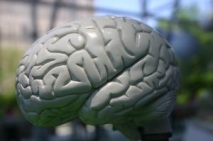| TBI Brain Injury |
Brain Trauma & Brain Injury Information |
|
|
|
|
|
Beware Of Closed Head Injury
When anyone has an accident, or comes across the scene of an accident, it is natural to think that people gushing the most amount of blood are the more seriously hurt, but this is not necessarily the case. Anyone who has had a blow to the head can be suffering from a closed head injury. So what is a closed head injury? A closed brain injury occurs when there is an injury to the head, but nothing penetrates the skull. In other words, the head seems to have escaped injury, but that is not necessarily true. Although the skull may not appear to be damaged, the brain itself can have injuries, caused by being shaken around within the skull. A closed brain injury is caused by a sudden shaking of the brain inside the bony skull which protects it. This shaking of the brain causes bruising and tearing of the blood vessels and tissue of the brain. On the other hand, an open head injury occurs when the skull is penetrated or broken, for example when a bullet enters the brain. In many ways it is easier to treat an open head injury, because you can see immediately the damage the injury has done. Head injuries are happening all the time, from a child landing on its head in the playground, to an adult being in a car accident, to something falling on someone's head. Every year there are some two million brain injuries in the US alone, and of these some 90,000 cause long term disabilities. These are frightening figures, and enough to make everyone take extra care. Motor vehicle accidents are the most common cause of brain injury, although the shaking of a child can also produce brain injury, and this is seen in cases of child abuse. When for whatever reason, the brain is shaken around in its skull the resulting damage to the internal lining of the brain can lead to internal bleeding, with swelling of the brain. The resulting brain injuries can take many forms, with mild symptoms disappearing fairly quickly, but with more severe cases there can be long term or even permanent disability resulting from the accident. Because the brain is responsible for so much in our day to day lives, brain injury can cause many, many problems, such as cognitive problems of confusion, possible shortened attention span, memory problems, judgment problems, an inability to understand concepts that could previously be easily understood, etc. There may be motor defects such as weakness or paralysis, poor balance, tremors, or poor coordination, while sensory problems may lead to changes in vision, hearing, taste, smell or touch. Language problems can also surface after a blow to the head. This can show itself as a difficulty speaking, or using incorrect words, a difficulty forming sentences, or difficulties reading and writing. Closed brain injury can also cause functional distress, whereby a person can longer live by themselves, as dressing, cooking, eating etc become a huge problem. Brain injury can also cause changes in sleep patterns, headaches, dizziness, and not surprisingly can lead to depression and anxiety. Of course, because of the possibility of unknown damage to the brain, any injury to the head and brain needs to be assessed by a qualified professional to find the true extent of the damage.
| |
|
©
Copyright
TBIBrainInjury.com, 2008. All Rights
Reserved.
Contact
Disclaimer
Privacy
